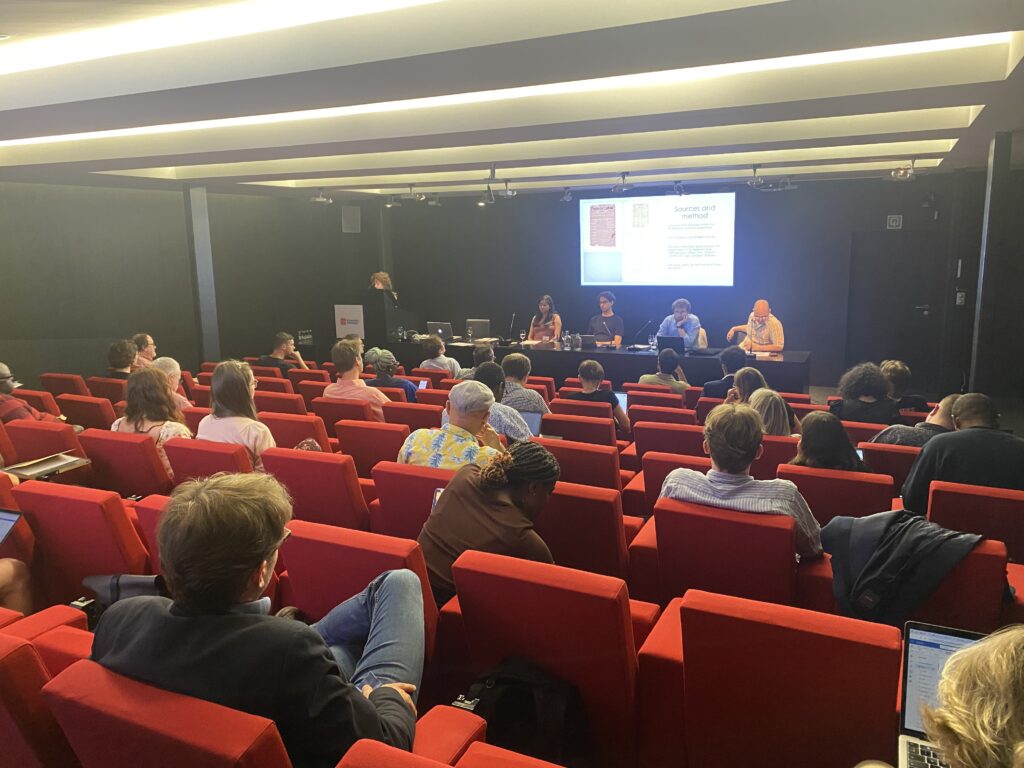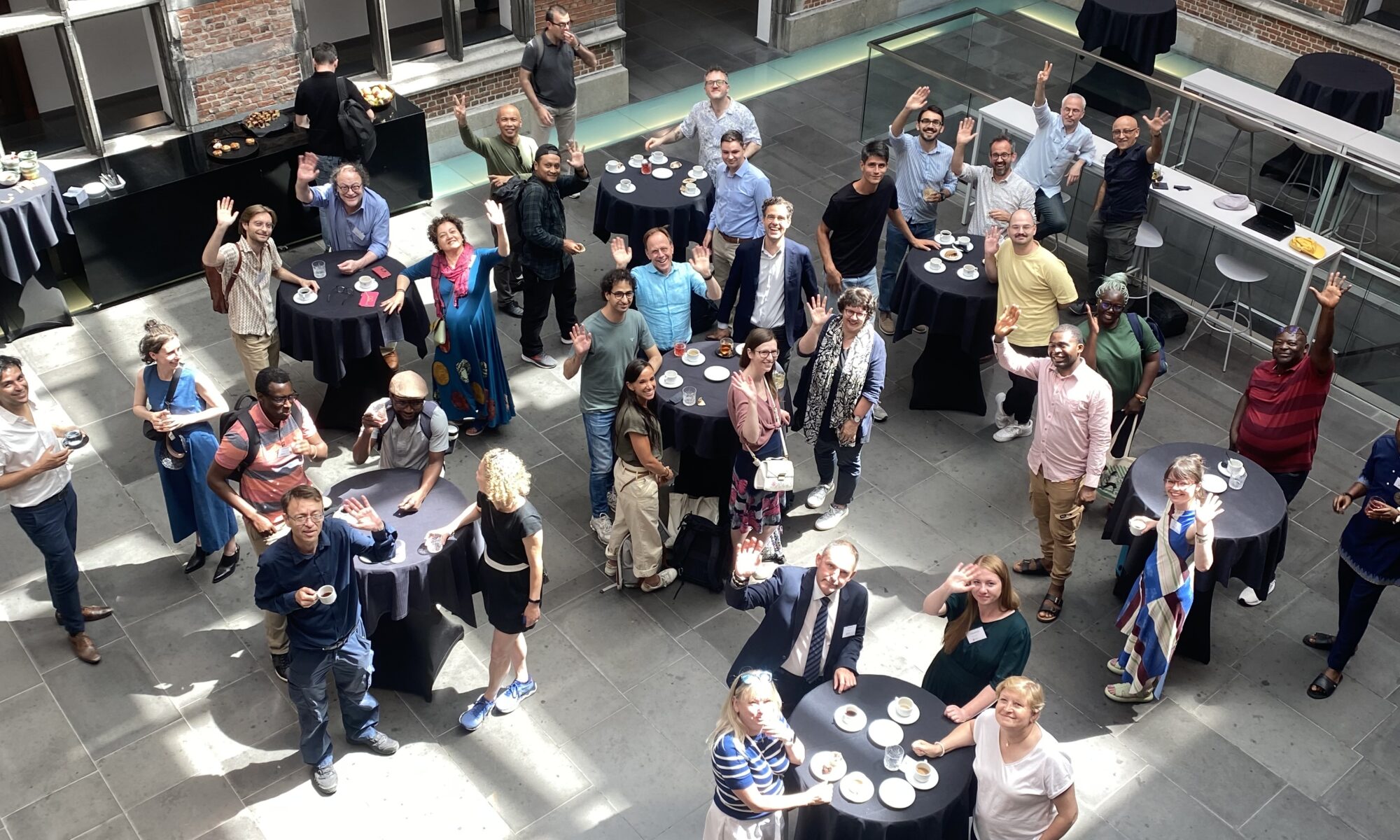From 18 to 20 June 2025, Power in History had the honor to host the 12th annual conference of the Association for Political History. We took this opportunity to raise some critical questions with regard to our own discipline. Ever since the Annales school, political history has been denounced as being elitist and hence siding with the powers that be. The rejuvenation of the field as it took place since the last decades of the twentieth century has altered this by adopting a much broader concept of ‘the political’ and recognizing wider segments of society as political actors. Yet, the scope of those who identify themselves as political historians often remains limited to the North Atlantic world and the type of political modernity that has emerged in that part of the world, most notably since the 18th century. Symptomatically, the Association for Political History itself is run by European historians and focuses nearly entirely on the history of the North Atlantic world. In the recent past, an enlargement of its scope to Central and Eastern Europe has taken place, but the Global South remained largely out of sight. It would be hard not to see this as a colonial legacy.
With the conference “How to Decolonize Political History”, we wanted to change this state of affairs at thee different levels: institutional, thematic and methodological. Although a three-days’ event obviously does not suffice to alter the course of a discipline, we are convinced that we have opened promising avenues at each of these levels. At the same time, we were also confronted with unresolved challenges.
At the institutional level, we managed to bring together scholars from the Global South and the Global North. We had keynote lectures by scholars from the Middle East, Sub-Saharan Africa, North America and Latin America, and our paper presenters equally came from all the continents – sometimes, but far from always with a position at an institution in the North Atlantic world. In order to do so, we had to surmount several barriers, caused by the persistence of colonial hierarchies. First of all, the blatant wealth inequalities make it extremely difficult for scholars from the Global South – even those among them who are tenured – to make academic journeys to universities in the Global North. Fortunately, generous funding by the FWO, the Association for Political History, the Onderzoeksschool Politieke Geschiedenis, the Global Engagement Committee of the University of Antwerp and our own Department of History, as well as a system of voluntary fees, enabled us to offer travel and accommodation grants to those participants who did not have any institutional funding.
Even then, getting to Antwerp turned out to be impossible for some of the participants – not for financial reasons, but because of visa restrictions. It is shameful to see to which degree citizens of the Global South are confronted with suspicion and with the bureaucratic arbitrariness and inertia of the Belgian diplomatic services. The most dramatic obstacle to reach the conference, however, was met by our planned keynote speaker Musa Sroor from Birzeit University at the West Bank in Palestine. Due to the genocidal war waged by the Netanyahu government against the Palestinians in Gaza – which is in many ways also a colonial war – he was unable to come to Antwerp.
In thematic terms, the diversity of the conference was too wide to be fully reflected in this short report (for the full program, see: https://www.uantwerpen.be/en/conferences/how-to-decolonize-political-history/programme/). Both the concepts of decolonizing and of the political were expanded in different direction and to different degrees. ‘Decolonizing’ was not only dealt with as a historiographical duty, but also as a challenge to current-day societies and politics. Moreover, it was not limited to removing the traces of European colonialism. The legacies of Russian/Soviet colonialism, and even of Polish colonialism on non-Polish parts of central Europe, were being dealt with. In many of the papers, postcolonial regimes in the Global South themselves appeared as actors of (neo)colonial policies. In that sense, ‘decolonizing’ often came very close to ‘democratizing’, in the sense of removing the illegitimate power exerted by the powerful over the powerless.

An impression of one of the conference panels © Margot Luyckfasseel
A general tendency among the papers was precisely the recognition of the political agency of non-state actors and practices, and hence the urge to widen the scope of ‘the political’ and of political history. What became clear throughout the conference, is that for many of the contributors, particularly from the Global South, ‘political history’ still was synonymous with a history of state institutions which tends to confirm the status quo. That the ‘new political history’ since the 1990s has tried to include many more political actors, seems to have gone largely unnoticed outside of the North Atlantic world. This is symptomatic of the lack of academic interaction so far, as well as the lack of attention that political historians in the North Atlantic have paid to actors and practices outside the European world. By bringing scholars from the Global North and South together, this conference has introduced a much wider array of non-state actors and practices than before into the realm of political historiography: not only charitable organizations, lobby movements and unorganized individuals, but also pre-colonial traditions and rituals in the fields of justice and governance.
However thrilling the vistas are to which this dialogue can lead, the question was raised whether such an anti-state bias is necessarily connected with decolonial approaches, and whether this can have unwanted implications. Doesn’t it entail the danger, for example, that also the redistributive mechanisms of the welfare state are rejected as being part and parcel of a (neo-)colonial state apparatus? How to integrate a nuanced vision of the state into a decolonial approach to political history remains a challenge for the future.
Taking into account non-state actors and practices necessarily also entails the methodological question of how political historians can work with sources that do not originate from traditional state archives or elite actors. This question was not only raised during a separate panel but ran through a large part of the papers and discussions. Apart from oral histories, private archives and material objects, also the persistence of and even participation in precolonial practices were highlighted and discussed as potential sources. Since many of these sources imply a high level of personal investment by the researcher, the question of positionality was raised in many contributions and discussions. This question is central to many historiographical debates today, but the decolonial approach made its importance particularly visible, even for scholars working with state-generated archives. The urgency of this matter became most obvious during the keynote speech of Jihane Sfeir about the pressing need not only to preserve, but also to create sources about Gaza during the ongoing war of annihilation it is confronted with.
The time was often lacking to carry on these discussions in a more profound way. We believe, nonetheless, that this conference has created new ties between scholars of different parts of the world in which this can happen. We were particularly happy with the willingness expressed by the board of the Association of Political History to invite members from the Global South. If this extension truly happens, this conference will have substantially contributed to the decolonization of our discipline.
Marnix Beyen
Margot Luyckfasseel
Burak Sayım
Als je aankondigingen van nieuwe blogteksten in je mailbox wil ontvangen, stuur dan een bericht naar charris.desmet@uantwerpen.be.

